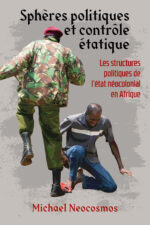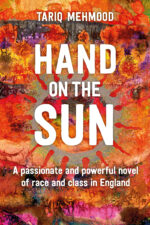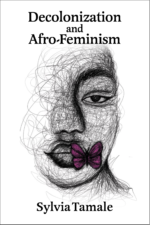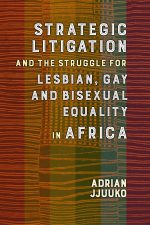-
Sphères politiques et contrôle étatique : Les structures politiques de l’état néocolonial en Afrique
USD $ 10.00Il s’agit d’une brève tentative d’orienter l’étude de l’État néocolonial en Afrique à travers une évaluation de la manière dont il gouverne son peuple. On soutient que l’État produit différents modes de contrôle étatique en déployant différentes politiques sur différentes parties de la population. De cette manière, il peut combiner une règle véritablement démocratique à l’image de l’Occident sur certains tout en soumettant la majorité à des formes coloniales de domination. Les subjectivités politiques importées de l’Occident et son obsession du discours sur les droits de l’homme sont largement réservées à une sphère de la société civile dans laquelle le droit d’avoir des droits est conféré aux citoyens. Dans les domaines de la société incivile et de la société « traditionnelle », le droit aux droits n’est pas respecté par l’État, de sorte que différentes subjectivités, y compris régulièrement la violence, régissent la manière dont les problèmes politiques et leurs solutions sont abordés à la fois par l’État et par le peuple. En conséquence, des subjectivités politiques distinctes prévalent dans la conceptualisation de la résistance populaire dans chacun des trois domaines, et il devient difficile de rallier des préoccupations et des conceptions aussi différentes au sein d’une lutte anticoloniale nationale.
“Une dissection concise, dense et éclairante des rouages de l’État africain post-indépendance qui trace également une voie vers l’imagination et le travail pour une véritable politique de libération.” — Ndongo Samba Sylla, chercheur principal, Fondation Rosa Luxembourg.
-
Strategic litigation and the struggle for Lesbian, Gay and Bisexual equality in Africa
There has been a rise in the use of strategic litigation related to seeking equality for lesbian, gay, and bisexual (LGB) persons. Such developments are taking place against the backdrop of active homophobia in Africa. The law and the general public should, argues the author, treat LGB persons in the same way that heterosexuals are treated. In the past two decades,30 strategic cases have been fi led by LGB activists in the Common Law African countries, namely in Botswana, Kenya, Nigeria, South Africa, and Uganda. While the majority of the cases have been successful, they have not resulted in significant social change in any of the countries. On the contrary, there have been active backlashes, counter-mobilisations, and violence against LGB persons, as well as the further criminalisation of same-sex relations and constitutional prohibitions on same-sex marriages in some of the jurisdictions. The author argues that activists in Common Law Africa have to design LGB strategic litigation in such a way as to fi t within the actual social and political conditions in their countries if strategic litigation is to spur social change.
Adrian Jjuuko is an exceptional scholar. A rare combination of intellectual brilliance, commitment and hard work. The book is born of this. It reflects his incisive analytical skills, anchored in solid knowledge of the law and jurisprudential developments in the field. His ventures into political theory, philosophy, and the social sciences give the analysis additional clarity and empirical grounding.
—Siri Gloppen, Norwegian political scientist, professor of Comparative Politics at the University of Bergen and Director of the CMI-UiB Center on Law and Social Transformation.
Adrian Jjuuko’s meticulously researched examination of the use of strategic litigation not only celebrates the many victories which have been realized in a range of African courts of law, it also reviews and critiques the losses. He demonstrates that the law can be both an effective tool for liberation, just as it can consolidate minority oppression, gender injustice and sexual tyranny. This book is a deeply engaging and highly recommended text for those interested in shaping the evolving rights and struggles of sexual minorities on the continent for decades to come.
— J. Oloka-Onyango, Professor of Law Makerere University School of Law





